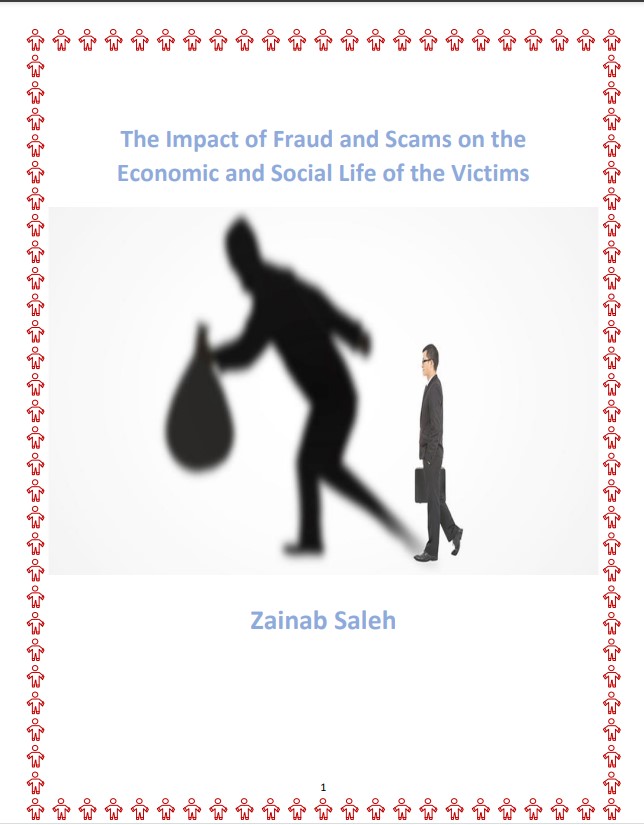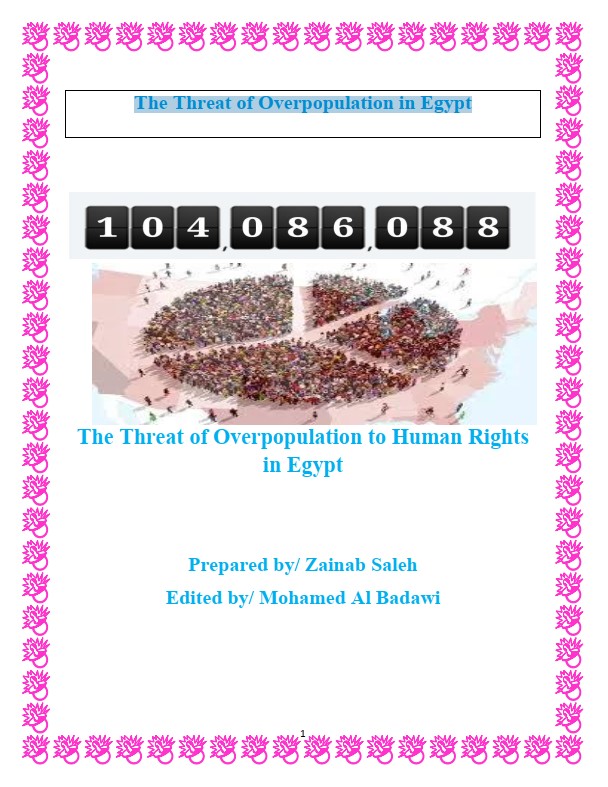Press Release
…………………………………………………………………………………
Today, Wednesday, October 18, 2022, the Forum for Development and Human Rights Dialogue (FDHRD) issues its report on the impact of fraud on the economic and social life of the victims. It discusses the phenomenon of fraud, which has spread in the recent period, explaining the definition of fraud and scams, clarifying their forms, and studying the “Mesterayaheen” phenomenon in Egypt in terms of the date of its inception, its causes and its effects, and the economic and social effects on the victims through cases and stories of the victims, clarifying the efforts of the state to address this phenomenon and providing some recommendations to combat it.
The report confirmed that some studies monitored an increase in the rates of fraud and scam crimes, especially in the governorates of Upper Egypt, followed by the governorates of Lower Egypt and then urban areas. These crimes spread among females as victims more than males. The ratios converged between rural and urban areas, which indicates the seriousness of the phenomenon and the need to confront it and raise awareness its economic and social repercussions within Egyptian society.
The report attributed the reasons for the spread of the phenomenon to:
The economic conditions experienced by the country and the entire world
Lack of vision from the owners of money to invest their money, or fear of taking risks
The swindler success in gaining the trust of the victims by luring them into his nets.
The lack of bank interest in relation to the benefits that can be obtained through the temptations offered by the swindler.
The spread of illiteracy in the villages of Upper Egypt and the Delta.
The report also documented the testimonies of some victims whose economic conditions were affected.
The report recommended that
• The legislation be changed and the penalties toughened for such crimes, so that whoever commits these crimes will know that he will not enjoy this money that he looted.
• Awareness be increased by all media, urging citizens to invest safely in their money and highlighting the phenomenon so that people realize its seriousness
• Religious institutions should make a lot of effort in order to educate citizens not to be led by unknown people to encourage fake investment, in order to prevent all of us in the end from spreading such phenomena that threaten the safety of society due to the lack of awareness in the light of the culture of greed
• Financial inclusion process be implemented by the economic ministries, which guarantees the preservation of citizens’ funds and the development of services provided to them.
It also provided some tips to avoid falling into the trap of fraud:
- Investing in guaranteed projects, and not giving in to people who try to draw attention to them with their ability to earn from various projects.
- Not trusting unknown persons and making deals with them and giving them access to savings and money in the first meeting, and not rushing to take a decision and ending the interview without being bound by any promises to invest with them.
- Take the advice of one of the legal experts in the terms of the contract, or make sure that you are accompanied by a lawyer specialized in this matter, so that you show the partner your seriousness and if he intends to fraud, he will retract his step, because a swindler is afraid of the official authorities “government department – police department” as he works, by all means, not to include any official body in his relationship with the victim.
- Avoid dealing with people who practice their work without an official license, or from an unknown source, such as an office whose headquarters is an apartment in a residential building or a house that you think is your partner’s house and make sure that it is a known place, and it is better to invest in approved places.
- Not revealing personal secrets, as a swindler prefers to focus on people who are strangers to the region or country to which he belongs, and he usually asks his victim about very personal matters such as wife and children “how many? their ages?” his profession, residence and financial conditions.
- Have conviction and do not let the love of money, greed, and the desire for quick access blind your sight and insight, so you fall into the trap of swindlers.
For his part, Saeed Abdel Hafez confirmed the spread of this phenomenon due to several factors, the foremost of which is the desire of some to achieve rapid wealth and high returns in short periods of time without verifying the size of the risks. An awareness campaign regarding the mechanisms of citizens saving their money is an important necessity in combating the phenomenon that is spreading in the governorates of Egypt and causing negative repercussions on the economy as well as societal peace.
For her part, Zainab Saleh, a researcher at the FDHRD, stressed that this phenomenon, which represents a danger to Egyptian society and has spread in it significantly in recent times and harms the rights of citizens, must be addressed. Both state institutions and citizens must work together to eliminate this phenomenon. Citizens must be more aware and careful and not trust any unknown people or companies and invest their money in guaranteed projects, which requires effort from them.








